My Dog Killed a Possum [Should I Be Worried?]
Possums are relatively docile creatures and are not prone to aggression unless provoked. They are solitary and nocturnal animals about the size of a house cat and are known to frequent areas where humans live due to the ready availability of food sources, such as trash cans, pet food bowls, compost piles, gardens, and the like.
This puts them within the territory of many dogs and cats, with the potential result of a confrontation with a pet. Because it’s not uncommon that dogs have the instinct to attack backyard visitors like possums, it’s important to know if your dog is in any danger if they kill one.
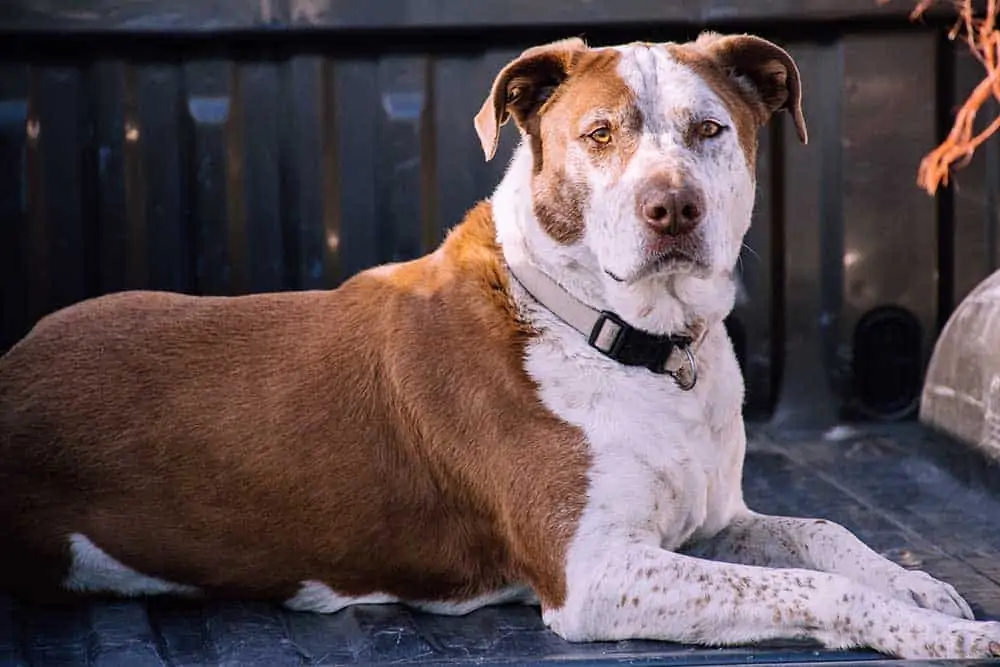
How Possums React To Attacks or Danger
A possum’s typical response to an aggressive action is to flee or respond aggressively by trying to look threatening by baring its teeth, or hissing. Another response is to play dead. This behavior is not something that the possum elects to do, rather it is an automatic response to a stressful situation.
Its brain is triggered and glands release chemicals that cause the possum’s muscles to freeze up, thus mimicking the appearance of being dead. This action is intended to reduce the apparent threat of the possum and the other animal will therefore back off and leave.
Whether the possum’s playing dead will provoke your dog to attack depends upon your dog’s habits regarding that. Many dogs are known to play with dead animals, but whether this is an issue depends on your dog’s habits and you should deal with this like any other similar event.
What To Do When Your Dog Kills a Possum
If your dog kills the possum, you must get the carcass. Command your dog to leave it, and place it in a secure container such as a plastic garbage bag. Store it in any cold place, although not a freezer as this will risk damaging any evidence of infectious disease.
You will need to take it to your local animal control agency for testing or your vet. You should also examine your dog for cuts, scratches, and bites given the possum’s sharp teeth and claws. It’s important to treat these wounds as soon as possible. Take care to wear gloves since the possum may have carried infectious diseases. Some of these can be transmitted to humans.
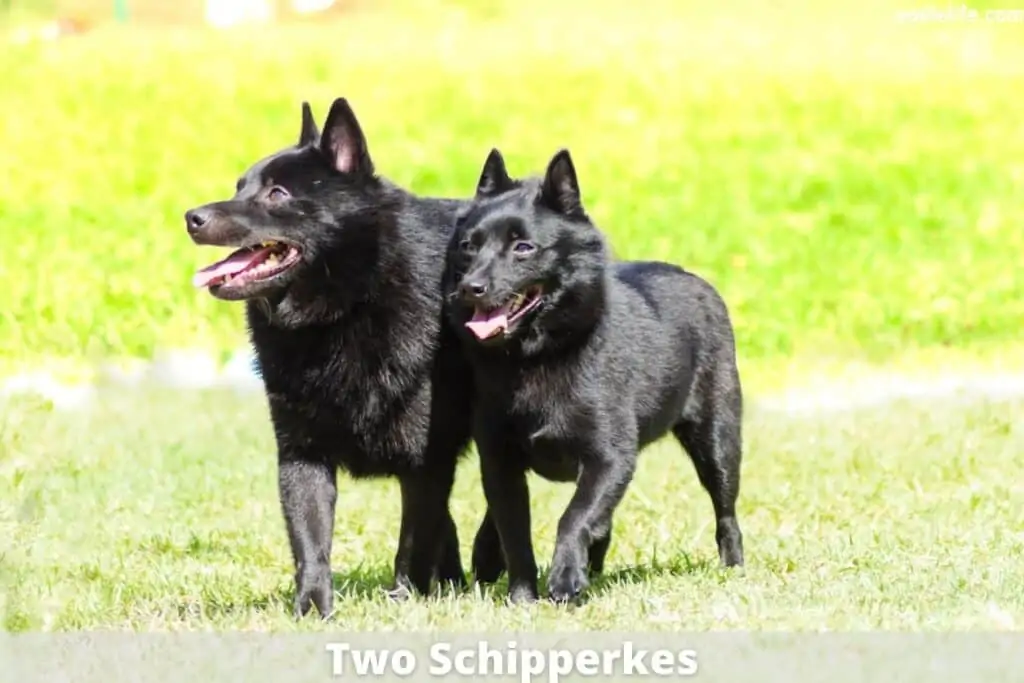
Are Possums Rabid?
Probably the first worry that a dog owner has when confronted with the reality of an attack is the question of whether or not the possum was carrying rabies.
Veterinarian Dr Charlotte Stiles (DVM)
Possums can carry rabies, although the incidence of occurrence is quite rare when compared to other wild animals. Because possums have a relatively low body temperature, this is a kind of natural immunity.
The possum’s low body temperature benefits from not providing a proper host environment in which to nurture the rabies virus. In short, the virus does have an adequate environment that it can thrive in.
Other Possible Diseases
Although the chief worry for pet owners is rabies, possums do carry other diseases and these are a concern. Among these diseases are coccidiosis, tularemia, and equine protozoal myeloencephalitis (EPM).
These are, however, spread through possum urine and feces. Therefore, if your dog goes about sniffing the urine and droppings of other animals, it will make them vulnerable to contracting such transmissible diseases.
Coccidiosis is a parasitic disease infecting the intestinal tract. Symptoms include diarrhea, fever, poor appetite, weight loss, emaciation, and in more rare cases, death. Tularemia is a bacterial infection; its symptoms include fever and skin ulcers. EPM is a parasitic neurological disease, usually contracted by horses after grazing and ingesting possums’ fecal matter.
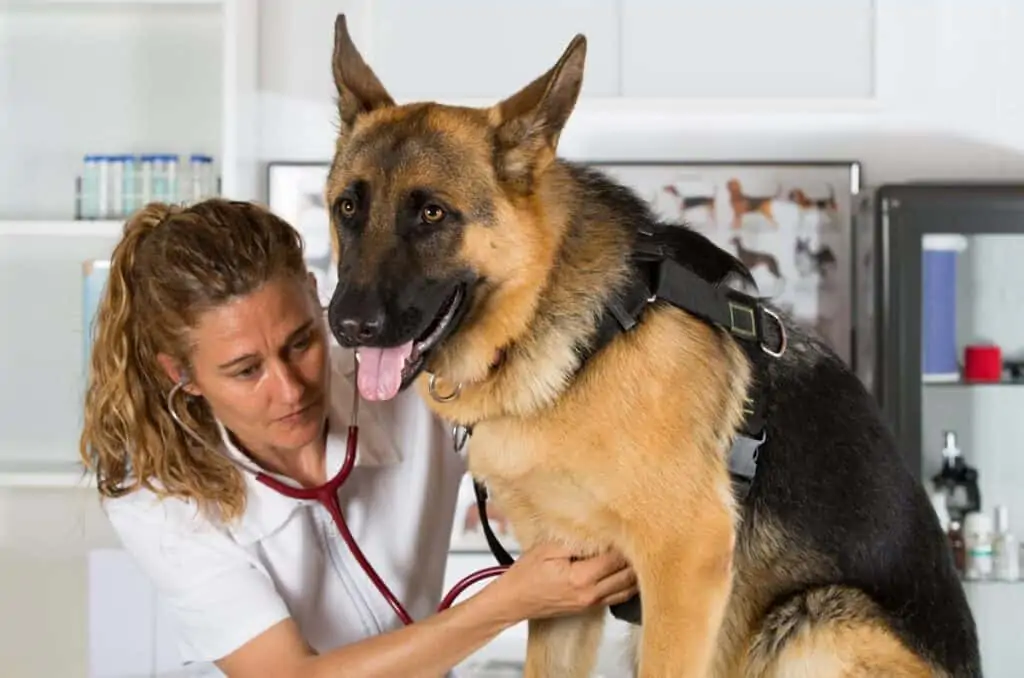
Potential Dangers Beyond Disease
Possums have very sharp teeth, and their paws have sharp claws. If the possum and your dog indeed get into a tussle, your dog could be subjected to cuts and slashes that require immediate attention.
Infection can set in if not treated properly. Be sure to attend to canine first aid as soon as possible and contact your veterinarian at the earliest opportunity, especially if they offer emergency services.
Otherwise, if there are emergency services available through a local veterinary hospital, take your dog there. You may also be able to bring the carcass of the dead possum; this will make it easy for them to test it to determine if it did have rabies or anything else that might prove to be a risk to your dog.
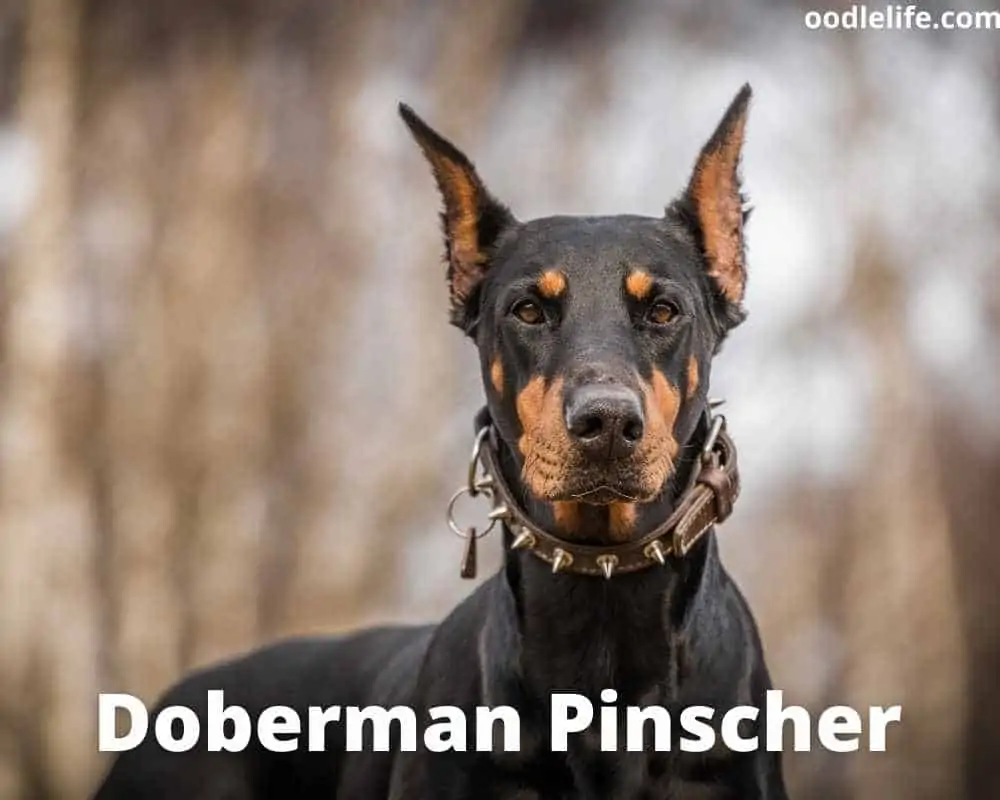
Your Vet Can Help
If you suspect rabies or some other disease, bring the carcass to the vet; or if you’ve contacted your local animal control agency, bring the test results when they have been completed. This can assist your vet in determining what, if anything, needs to be done. Having accurate information with regards to the extent the possum may have had rabies or anything else is important in obtaining the proper care for your dog.
Furthermore, the vet can treat any wounds the dog may have received from the encounter with the possum.
What Do I Do After My Dog Has Been Treated?
After you have taken your dog for the appropriate veterinary treatment, just follow the vet’s care plan and be sure to administer any prescribed medications. Follow up with the vet as needed.
Dog vs Possum FAQ
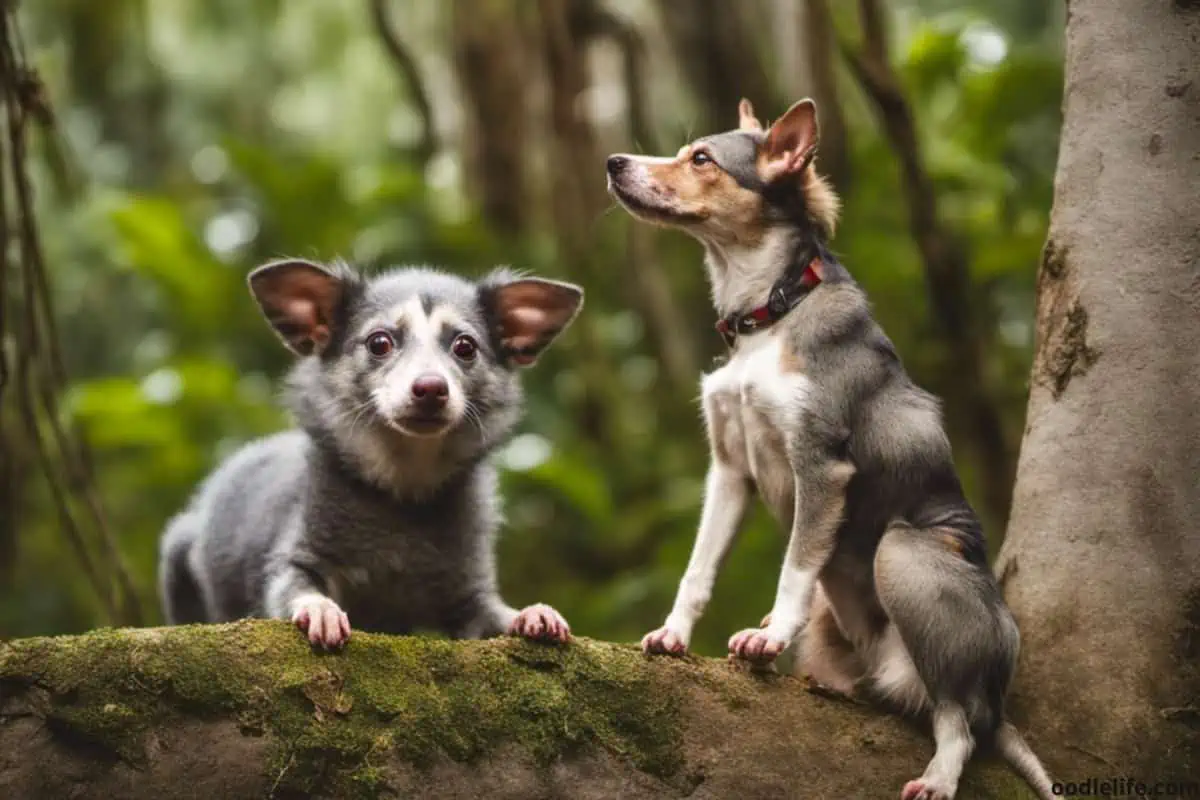
Can a possum kill a dog?
While possums are generally non-aggressive and prefer to avoid confrontations, they have sharp teeth and claws. They will defend themselves if cornered or if they feel threatened. While it is unlikely for a possum to kill a healthy, adult dog, they can potentially harm small or young dogs. The primary concern is the transmission of diseases or parasites from the possum to the dog rather than fatal injuries.
Why do dogs kill possums?
Dogs have inherited hunting instincts from their wild ancestors. Here are some reasons dogs might go after possums:
- Prey Drive: Some dog breeds have a high prey drive, meaning they are instinctively driven to chase and potentially kill small animals.
- Territorial Behavior: Dogs are territorial animals, and they might see possums as intruders in their territory.
- Curiosity: Dogs are naturally curious creatures and might be intrigued by the presence of a possum.
- Protection: Dogs might feel they are protecting their home or family from a perceived threat.
What happens if a dog eats a possum?
If a dog eats a possum, several concerns arise:
- Disease Transmission: Possums can carry various diseases, parasites, and bacteria that can be transmitted to dogs.
- Digestive Issues: Consuming wild animals can upset a dog’s stomach, leading to vomiting or diarrhea.
- Ingestion of Bones: Bones can pose a choking hazard or cause internal injuries.
If you suspect your dog has eaten a possum or any part of it, monitor them for any signs of illness or distress and consult a veterinarian immediately.
What if a possum bites my dog?
If a possum bites your dog:
- Immediate Care: Clean the wound with warm water and mild soap. Seek veterinary attention, especially if the wound is deep or becomes infected.
- Disease Concern: Possums can carry diseases such as leptospirosis. While transmission is rare, it’s a concern, and a vet should evaluate your dog.
- Rabies: In many regions, possums are not commonly known to carry rabies, but it’s always a good idea to discuss with a veterinarian.
- Check Vaccination Status: Ensure your dog is up-to-date with vaccinations, especially tetanus.
- Monitor for Infection: Keep an eye on the wound for signs of redness, swelling, pus, or if your dog starts excessively licking or biting the area.
Prevention Tips
You can easily provide a safer environment for your dogs by realizing what it is that possums are interested in if they are found in your yard. They are looking for food, and if you have a garbage can that contains food scraps, keep it secured with a cover that is difficult to remove, or move it inside a garage if you have one.
If you feed your pets outside, you may wish to explore indoor options to eliminate pet food as a target. Also, a properly fenced-in garden, or entire backyard, may repel them; and if you have a compost pile, placing covers over it such as tarps, or composting in garbage cans or tumblers may reduce that as an enticing food source.
Having more issues outside? How to stop a dog from eating plants and how to find a break in a wireless fence.